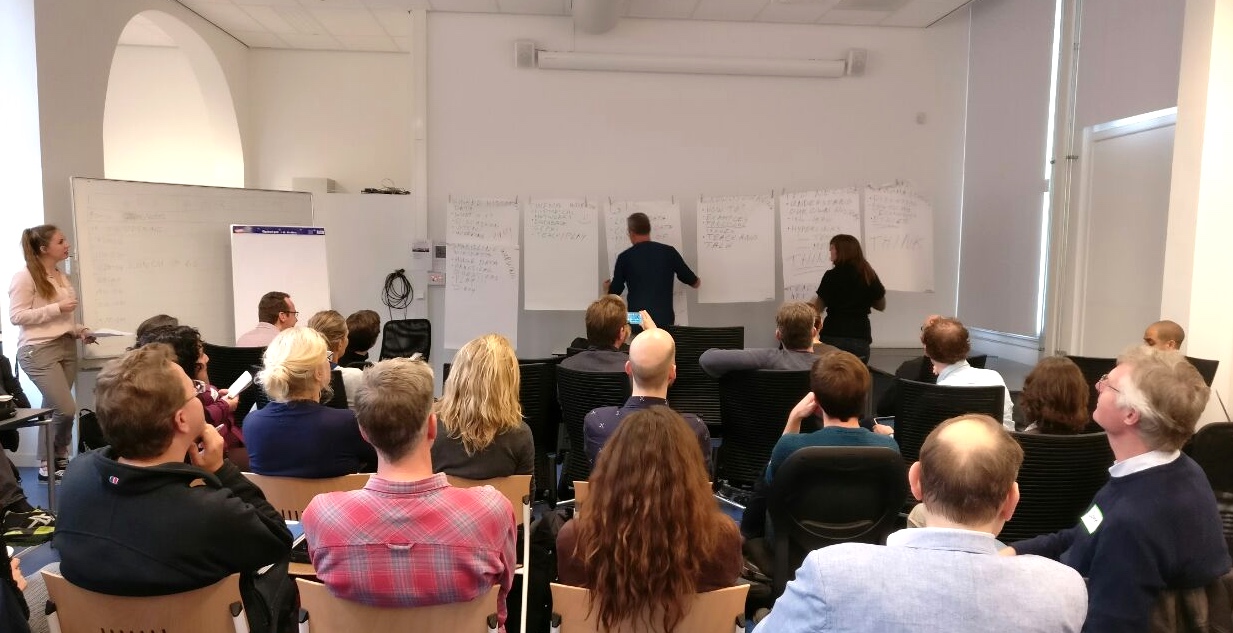
This week, the visual navigation project continued with observations in the different libraries of the University of Oslo, in order to uncover common interactions and opportunities to improve the (digital) library services. In addition, the plans for the different streams of the project were further finalized, and there was a meeting with staff of the Humanities and Social Sciences library. Finally, Hugo visited two conferences in the Netherlands, relevant to the topic of visualization of (linked) data, and research support by academic libraries.
Specific activities
- Finalizing a project proposal for the detailed activities and “streams” in the Visual Navigation Project, sharing it with Live and Helge. This proposal will be discussed further at a later point.
- Second observation at Medical library, Ulleval (24.10.2016) To gain further insights into desk interactions, common questions at the library (predominantly book related questions, but also questions related to utilities, literatursok appointments and miscellaneous issues)
- Discussing the use of navigation tools, e.g. browsing by keywords, NLM
- Meeting with Mikaela; discussing ideas / plans for the project in the context of the medical library
- Value of different project streams in a medical library context (e.g. value of medical databases for visualization, and practical issue of “blocked” web services in the hospital network)
- Attending conferences in the Netherlands, including ThatCAMP Amsterdam (“The Humanities and Technologies Camp”).
Summary of presentations (a full report is available)
- Topics of the attended sessions were varied, and included theoretical discussions (e.g. “Back to the Hyper-Web: Ted Nelson’s Dream Machine/Comp Lib Revisited”, and “How to teach artistic digital thought in Age 2.0”), as well as practical sessions (“Linked Historical Data, Big and Small”, discussing Linked Data use cases and how to perform research using linked data). A session including both theoretical and practical aspects was about “the role of crowdsourcing in humanities scholarship”. Here, the concept of crowdsourcing was discussed, but also paid platforms such as Amazon Mechanical Turk and Crowdflower.org, and open initiatives Zooniverse. The latter platform can provide the opportunity to easily create crowdsourcing applications for heritage collections.
- Another session of interest was “Digital Humanities and Libraries”, organized by VU University Amsterdam and the National Library of the Netherlands. The first question focused on the question of what humanities researchers expect from librarians in the age of “Digital Humanities”. Attending historians preferred “good advice”; “as much data as possible”, and “as good metadata as possible”; guidance on how to get datasets and how they were made (context). Attending data scientists wished for transparency (knowing how digital collections are put together, i.e. what is in there and what not, as well as information about (ocr) quality. An archeologist was interested in how to connect 3d models with data, and where to store new data. An attending art historian wished information about “what happened to the library in digital situation”, history of selections, as well as source critique. Librarians wished to know: how do historians use digital data, which tools are out there, “who is the next person to call”
- The next question focused on the question if there is “a market for ‘digital humanities’ librarians?” Librarians with basic knowledge on data research, versus full experts. E.g., basic knowledge, and possibility to refer to expert? The possibility to provide services to people who are starting with these kind of things; until they know enough to continue themselves (i.e. “raise the researchers”). Dependence vs. teaching. More support also results in more responsibility (i.e. researchers incorrectly using data and available tools) Current initiatives include e.g. the “Centre for digital scholarship”, Leiden University Library, started a few months ago; Research data services, VU University Amsterdam